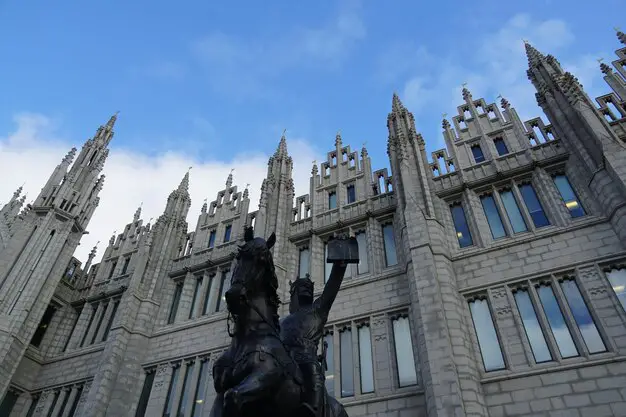Columbia University has agreed to the Trump administration’s terms, committing to significant changes in exchange for the reinstatement of $400 million in federal funding.
Columbia University has complied with the Trump administration’s demands, committing to significant policy changes in order to regain $400 million in federal funding. The decision follows the government’s recent withdrawal of funding, citing allegations of antisemitism on campus.
As part of the agreement, Columbia will prohibit face masks on campus, grant security officers the authority to remove or arrest individuals, and appoint new leadership for its Middle Eastern, South Asian, and African Studies department. This decision has sparked criticism from professors and academics, who fear it establishes a concerning precedent for government interference in academic institutions.

The Trump administration has intensified its scrutiny of universities, warning at least 60 institutions about potential action for allegedly failing to comply with federal civil rights laws related to antisemitism. Additionally, the administration has targeted law firms it claims have supported Trump’s political opponents or prosecuted him unfairly.
Columbia University’s agreement has sparked disappointment, with Professor Jonathan Zimmerman, an education historian at the University of Pennsylvania, calling it a “sad day” for the institution. According to The Guardian, Zimmerman noted that the administration’s actions have had a chilling effect on higher education, discouraging officials at other universities from opposing its demands.
“Historically, there is no precedent for this,” Zimmerman stated. “The government is using the money as a cudgel to micromanage a university.”
The loss of federal funding has had tangible consequences at Columbia, disrupting medical and scientific research. Researchers have reported project terminations due to “unsafe antisemitic actions,” affecting studies such as an AI tool for early detection of patient health deterioration, research on uterine fibroids, and efforts to improve the safety of blood transfusions for patients of all ages.
In response to the controversy, Columbia has hired three dozen special officers with arrest powers and revised its anti-discrimination policies. The university has also announced new joint positions at the Institute for Israel and Jewish Studies and the international affairs school to promote “excellence and fairness in Middle East studies.”
A memo outlining the agreement states that the Senior Vice Provost will review educational programs to ensure they are comprehensive and balanced, starting with the Center for Palestine Studies, the Institute for Israel and Jewish Studies, the Middle East Institute, and other Middle East-focused programs.
Additionally, the newly appointed official will oversee the review process for hiring non-tenured staff and approving curricular changes.
Columbia has faced heightened scrutiny following last year’s pro-Palestinian student protests, which saw widespread demonstrations and tent encampments on campus opposing U.S. support for Israel.
The Trump administration’s actions are widely perceived as an effort to assert control over academic institutions and suppress free speech. The situation has raised concerns among academics, researchers, and students about the broader implications of government interference in university affairs.